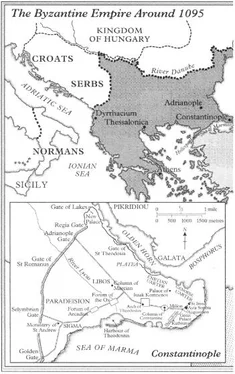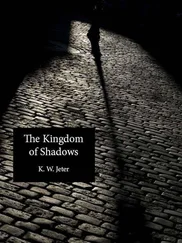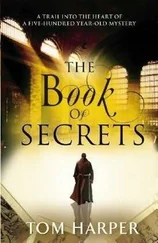Tom Harper - The mosaic of shadows
Здесь есть возможность читать онлайн «Tom Harper - The mosaic of shadows» весь текст электронной книги совершенно бесплатно (целиком полную версию без сокращений). В некоторых случаях можно слушать аудио, скачать через торрент в формате fb2 и присутствует краткое содержание. Жанр: Исторический детектив, на английском языке. Описание произведения, (предисловие) а так же отзывы посетителей доступны на портале библиотеки ЛибКат.
- Название:The mosaic of shadows
- Автор:
- Жанр:
- Год:неизвестен
- ISBN:нет данных
- Рейтинг книги:3 / 5. Голосов: 1
-
Избранное:Добавить в избранное
- Отзывы:
-
Ваша оценка:
- 60
- 1
- 2
- 3
- 4
- 5
The mosaic of shadows: краткое содержание, описание и аннотация
Предлагаем к чтению аннотацию, описание, краткое содержание или предисловие (зависит от того, что написал сам автор книги «The mosaic of shadows»). Если вы не нашли необходимую информацию о книге — напишите в комментариях, мы постараемся отыскать её.
The mosaic of shadows — читать онлайн бесплатно полную книгу (весь текст) целиком
Ниже представлен текст книги, разбитый по страницам. Система сохранения места последней прочитанной страницы, позволяет с удобством читать онлайн бесплатно книгу «The mosaic of shadows», без необходимости каждый раз заново искать на чём Вы остановились. Поставьте закладку, и сможете в любой момент перейти на страницу, на которой закончили чтение.
Интервал:
Закладка:
I regretted those final words — and the furious anger in Anna’s face that had met them — all the way to the docks. Of course I cared not an iota that she was a woman and a doctor: I had only wanted to sting her, as her alliance with Sigurd had stung me, just as Zoe used to poke Helena until she screamed when they were babies. My motives were just as childish.
With my foul mood thus firmly set, I passed my morning with merchants and factors, with stevedores, foremen and pilots, in a far-fetched attempt to discover when and how the tzangra had entered the city. The smells of fish and sewage which infested the wharves soured my humour still further, as did my predictable failure to turn up any new information. Whores propositioned me — perhaps, even after so many years, there was something of the soldier still in my stride — and peddlers begged a moment of my attention for their wares: perfumes just arrived from India; honey from the bees of Epirus; relics of the saints found in the desert, preserved so immaculately that they might have lived yesterday. I came perilously close to breaking the fast with a man furtively carrying a wineskin under his cloak, but I resisted. I had no need for more reasons to rebuke myself.
The clamour and hassle battered me all morning, until at last I broke. I dredged Krysaphios’ list of dignitaries from the corner of my mind where I had ignored it, and considered the names it held. Another lesson of my time in the army: if you make no progress with the task appointed, do it precisely the way your superior commands. Half the time at least, he will care far more for obedience than success.
Earlier in the week, I had tried to start with the lowest rank on the list and been resoundingly shunned; this time I would go to the opposite extreme. The name rose easily from my memory, and my peevish temper found grim delight in the prospect of an afternoon wallowing in righteous frustration. Nor did I need to ask where he lived: on a day when my every question drew a negative, even I could probably find the Emperor’s elder brother.
He did not live humbly, of course, but in a palace built out on terraces over the wooded hillside above the harbour. It had once belonged to a man named Botaniates, who had had the misfortune of being Emperor when the Komnenos brothers — Isaak and Alexios — decided the imperial diadem would suit one of them better. Alexios took the throne; Isaak got the house, though from the size of it you might have thought he had won both.
To my surprise, my name alone took me past the first gate, and into an atrium where dozens of hopeful supplicants played at dice on the flagstones. Many of the games looked well advanced, and I feared I would lose more than a few obols before my time arrived, but almost immediately a slave in an ochre tunic ushered me through a narrow door and into an inner courtyard, beyond the envying glances of the less favoured.
‘I will tell the Sebastokrator you have come,’ he said, excusing himself.
I paced around the courtyard, waiting. A two-tiered arcade ran around its edge, but I saw no-one in the galleries. The only light came from a square of grey sky high above me, distant and remote, but a little sun must have crept in at times, for a vine had managed to climb some way up the northern side. Its thick stem coiled around the marble pillars, branching and spreading across the face of the wall as if desperate to escape into the air above, while the withered leaves it had shed were left unswept on the cracked tiles below. I doubted the Sebastokrator spent much time here. It was a mournful place, silent and sombre.
Except in one corner. Most of the walls were crumbling and faded, but here there was a bright mosaic, newly laid and vivid even in the dull half-light. Still alone, I crossed the broken floor to look closer. It was a striking work, a triptych of bold colours whose subjects seemed to leap from their gilded background. The subject was unusual, too. In the first panel, a white-bearded man watched as a woman held a fair-haired baby to her breast; sheep grazed in the background, and three angels sat at a table laden with fruits. The second, central panel was a dramatic contrast: now the old man stood with his arms aloft, a firebrand in one hand and a knife in the other, poised to strike the helpless child bound before him on a wooden table. His eyes were wide with a terrible fervour as he stared out at his unseen audience, and by some trick of the artist the knife seemed to stretch forth from the picture, reaching almost into the air above me. A young boy with dark skin and tousled hair stood beside the man; despite the horror of the scene he witnessed, he seemed to be laughing.
The violence of the image was mesmerising, but I pulled my gaze away and looked on to the third panel. Now harmony was returned, and the old man’s eyes were kindly again. He had wrapped his arm around the fair-haired son and was pointing him towards green hills in the distance. The sheep had returned, and the angel was blowing on a trumpet in the clouds. But it was not all innocence, I saw, for in the lower corner of the picture the tousle-headed boy was fleeing into darkness, his face cast down and a scorpion pricking at his bare heels.
‘Do you like the mosaic?’
I started; for a second I thrilled with the fancy that the voice had come from the very picture itself. Then I turned, and saw that a new arrival had crept up behind me. He was shorter than I and a little older, with light hair and a thin beard. There was something martial in his thick arms and broad shoulders, but he was dressed simply in a white dalmatica. He seemed an unlikely clerk — but too forward for a slave.
‘It paints a vivid picture,’ I answered. So vivid, indeed, that it still addled my thoughts. ‘So real it might almost draw the censure of the church. The artist must have a singular talent.’ I considered it again, still unsure of whom I spoke to. ‘But the subject confuses me.’
‘It tells the story of Abraham and his sons.’ My companion pointed to the first panel. ‘Here he and Sarah rejoice at the birth of their son, Isaak, prophesied by angels when all thought Sarah barren. In the second picture, Abraham is poised to sacrifice Isaak, as the Lord commanded to test him. Finally, Abraham embraces Isaak as the future of his line.’
Much of that I had guessed, but elements of the iconography confused me. ‘Who is the dark-haired child who looks on in the middle image, and flees away at the last?’ I asked.
‘The child is Abraham’s bastard son, Ishmael, born to him by the slave-woman Hagar. In the last picture he is cast out by Abraham, expelled into the wilderness.’
I shivered, for suddenly the images seemed every bit as dangerous as the wild-eyed man wielding the dagger. I did not need Krysaphios’ familiarity with palace gossip to guess its meaning, still less in the very house of the Sebastokrator Isaak, whose father had overlooked him for the imperial throne in favour of his younger brother. Merely to think that he, like Abraham’s rightful heir, might eventually be restored to his inheritance at the expense of his brother was almost certain treason. I wondered whether the Emperor Alexios had visited this room in his brother’s palace.
But I had little time to think on allegory, for my host had stepped away to examine some detail in the picture, and as he moved his white gown rode up over his ankles to reveal a pair of mismatched boots. One was black, but the burnished leather of the other — identical in form — was unmistakably red.
Only one man in the empire wore red boots, and only a handful of others had the right to wear a single such boot in honour of their kinship with him. In an instant I was prostrate on my knees, touching my forehead to the floor and reciting the imperial incantations like a liturgy. I had seen too many pretenders and usurpers to believe that any man deserved the abasement that ritual demanded, but never had I imagined I would stand in the Sebastokrator’s palace discussing the merits of his artist. I fastened my eyes on the floor, and prayed he had not taken offence.
Читать дальшеИнтервал:
Закладка:
Похожие книги на «The mosaic of shadows»
Представляем Вашему вниманию похожие книги на «The mosaic of shadows» списком для выбора. Мы отобрали схожую по названию и смыслу литературу в надежде предоставить читателям больше вариантов отыскать новые, интересные, ещё непрочитанные произведения.
Обсуждение, отзывы о книге «The mosaic of shadows» и просто собственные мнения читателей. Оставьте ваши комментарии, напишите, что Вы думаете о произведении, его смысле или главных героях. Укажите что конкретно понравилось, а что нет, и почему Вы так считаете.












